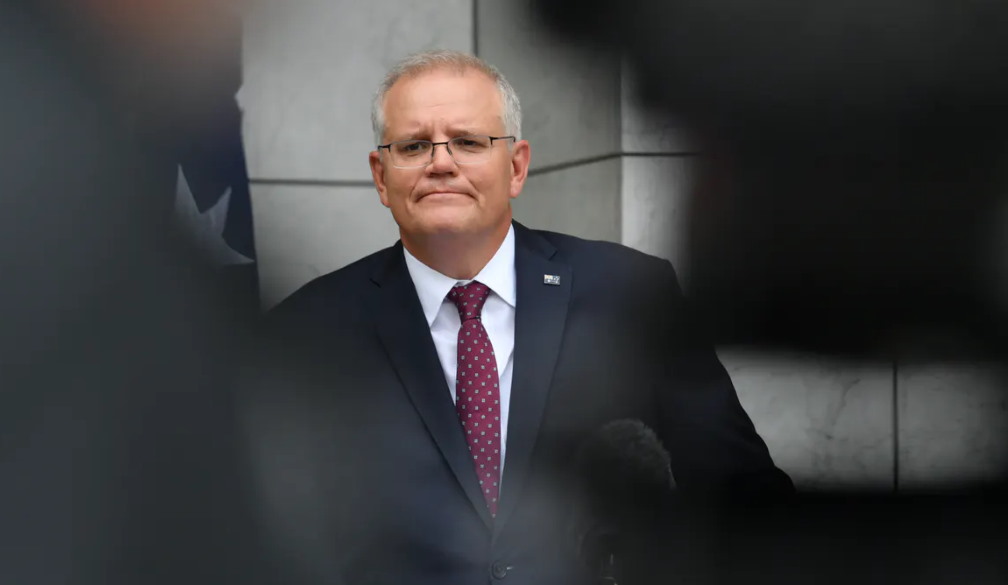Confused polling distorts the debate on an Indigenous Voice to Parliament
- Written by Murray Goot, Emeritus Professor of Politics and International Relations, Macquarie University

Would Australians vote for an Indigenous Voice in the Constitution? Would they approve the parliament simply legislating a Voice? Australians may support one, both, or neither.
The answers matter because after the next election we may be looking at a referendum to amend the Constitution by adding a Voice to parliament, or moving towards the new parliament legislating a Voice.
Labor has promised a referendum, while the Coalition seems more inclined to legislate – possibly with Labor’s support, since this would not preclude a referendum.
Much may depend on what the polls show.
What polls can tell us:
-
polls showing opposition to a constitutional amendment but support for a legislated Voice would discourage a government from holding a referendum
-
polls showing support for a constitutional amendment but opposition to a legislated Voice would encourage a government to hold a referendum
-
polls showing opposition to both would make change less likely
-
polls showing support for both would boost a campaign for the Voice that has faded in the last two years.
To change the Constitution, a vote in favour of a Voice would need the support of the majority of voters in the majority of states.
In the latest attempt to establish not whether voters want to hear a Voice but what sort of Voice they might want to hear, the Sydney Morning Herald and the Age commissioned a national poll of people enrolled to vote from Resolve, a political communications company.
In this poll, conducted in mid-January, respondents were told[1]:
Some people have suggested that the Indigenous Voice should be permanently enshrined in the Constitution with a national vote so that it cannot be easily removed, and only then made law once it has that public endorsement. However, others would prefer that it is made law in the first instance so that it can be road-tested before a permanent place in the Constitution is voted on, and to avoid the chance of a “no” vote without that road-testing.
When respondents were asked to indicate their “own preference”, about a quarter (28%) said they preferred the first option (hold a vote to enshrine the Voice in the Constitution), about a quarter (24%) said they preferred the second option (legislate the Voice in the first instance), and about half (48%) were categorised as “not sure/no preference”.
These numbers suggest majority support for neither a referendum nor legislation. But questions to which half the respondents can’t give an answer are usually questions that should never have been asked.
In cases where huge numbers fail to make a choice, respondents either don’t understand the question or are indifferent between the choices offered. The proportion answering “not sure/no preference” in the Resolve poll very likely underestimates this.
Asking a question that requires respondents to factor in sequences of events - constitutional change before legislative change or legislative change before constitutional change – when they have little interest in or knowledge of politics is too complicated.
The wording of the question doesn’t help. The phrase “permanently enshrined” is likely to reduce support for change, I suspect. In addition, the idea of legislation as a form of “road-testing” is challenged by critics who insist if the Voice did pass such a “test”, the push for constitutional “enshrinement” would lose momentum.
A balanced question (or set of questions) in the poll would have recognised these contested understandings.
Above all, the question about a Voice to Parliament ignores the possibility that respondents may have been prepared to support a referendum followed by legislation. The fact that someone prefers X to Y does not begin to show they would be happy with X, but unhappy with Y.
Finding a poll showing majority support for constitutional change is not hard, though finding a poll that doesn’t offer respondents a politics tutorial along the way is harder.
In June 2020, in an unpublished poll conducted pro bono for a group lobbying for constitutional change, the research firm C|T Group asked respondents how they would vote:
if a referendum were held today […] to change the Constitution to set up a new body comprising Aboriginal and Torres Strait Islander people that gives advice to federal parliament on Aboriginal and Torres Strait Islander issues.
More than half (56%) said they would “definitely” or “probably” vote yes, 17% said they would “definitely” or “probably” vote no, and 28% were “undecided”.
Polls that ask about legislating a Voice without necessarily changing the Constitution are scarce. But in February 2018, Newspoll told respondents[2] then-Opposition leader Bill Shorten “has pledged to create an indigenous (sic) advisory body to give indigenous people a voice to parliament”.
Newspoll asked whether “on balance”, respondents were “in favour or opposed to Bill Shorten’s plan to give indigenous people a voice to parliament.” More than half (57%) favoured the plan (despite it being tagged as a Labor proposal), 32% opposed it, and 18% said they didn’t know.
If the choice respondents were given in Resolve’s poll is not one they want to make, it is also not one they may need to make – provided they support both ways forward. Whether they do, the Resolve poll isn’t well enough designed to say.
References
- ^ respondents were told (www.smh.com.au)
- ^ told respondents (www.theaustralian.com.au)

















